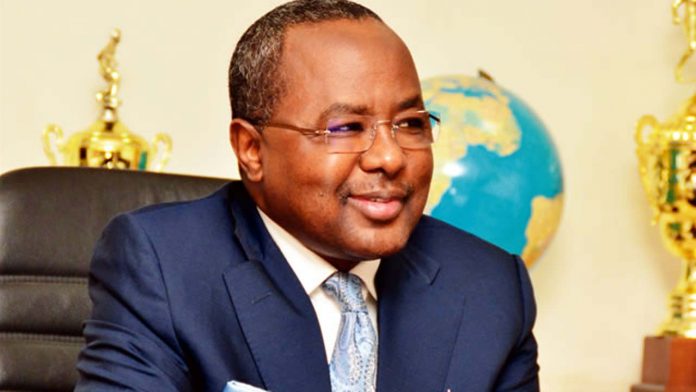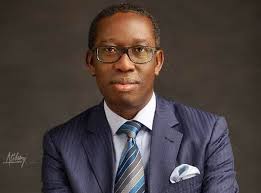The Nigerian equities market is currently battling with a challenge of how to harmonize multiplication accounts which could either be forfeited by their owners or merged into one single account.
According to the Director General Securities and Exchange Commission, (SEC), Mounir Gwarzo, multiple accounts that are similar could be merged to a dedicated account, while multiple accounts without any similarity must be forfeited by their owners.
Gwarzo, who said at the recent post capital market Committee (CMC), briefing in Lagos, stated that funds emanating from such accounts is to be part of a market interventionist fund, which could be placed at the disposal of market operators.
Many stakeholders have wondered what happens to biometrics, as even if names on multiple accounts could not match, biometric data on the forms cannot be altered, realizing that the multiple IPO applications helped in growing the market.
The issue of multiple accounts, Daily Times Nigeria can recall, brings to bear, the era of market vibrancy and multiplicity of Initial public offers (IPO), (2005-2008), during which Nigerians of diverse financial standing, ethic coloration and profession, struggled to have a bite of every public offer emanating from the Nigerian Stock Exchange (NSE).
Then, there was the market euphoria by parents to ensure that they enlist their children to the capitalist world through the registrars of many listed companies, as well as acquisition of their shares in the children’s names.
It was on record that during the vibrancy of the IPO market, many capital market-based young millionaires clubs emerged, as more and more entrepreneurs and young Nigerian’s find their ways to the equities market through registered stock brokers.
In a way to leverage ownership of shares of listed to enhance savings, friends were introducing one another to the market, while neithbours and relatives tell stories of every ongoing initial public offers to their colleagues and loved ones, with the motive of empowering them through capital market investment.
Stock markets across the world have the responsibility of ensuring mobilization of funds for small and medium scale Enterprises (SMEs) through floating IPOs, as well as large organizations wishing to exploit the market opportunities to source cheap funds.
When a company embarks on IPOs or initial public offering, the firm goes public on a stock exchange. IPOs are one of many ways in which companies can seek to raise capital, with other popular options including finding major investors, crowdfunding or using retained earnings.
A successful IPO can raise huge amounts of capital. This all makes any float a costly consideration for a business. For traders, though, a float can be a great way of getting a share of a company the moment it hits the stock market.
Daily Times findings indicated that while many new investors are hesitant of entering the market even through the IPO segment, many investors, who took flight to safety , have further been frustrated by worse economic scenario and evolving investment challenges.
The Nigerian capital market has sustained dearth of equities IPO segment over the past years, reflecting the low level of confidence pervading the market. This has thrown many questions on how to return the market to be able to help young emerging companies raise funds through IPO.
The SEC DG said that with the on gonging market innovation through the Bankers Verification Number (BVN,) instances of multiple application would be ruled out, hence future IPOs would be electronically driven.
“Only money bags will engage in multiple IPO application, the retail investor will only apply ones and monitor his investments), Gwarzo said.
Founder of the Independent Shareholders Association OF Nigeria (ISAN), Sir, Sunny Nnwosu, told said that when confidence was high, may retail investors bought shares for their children in different names, but dedicated to their parents’ accounts, such accounts cannot be transferred to the children except when they turn 18 years, when as some may lose their investments, because of the dissimilarity in the names.
Based on his submission, the idea of parents buying shares for their children has been ruled out in subsequent IPOs. Children, he said, lack BVN number; and are not signatory to bank accounts, strengthening challenge faced by emerging companies to raise funds from the equities market.
Chairman, Nigerian Professional Shareholders’ Association, Mr. Godwin Anono, told The Daily Times that based on developments in the market, it will take long before full confidence is restored to the IPO markets segment. “You know that the market does not care where you participate in it or not.
It is not just IPO, all rights issues without target investors will be greatly under subscribed” He said that irrespective of the new rules that would streamline the market, the prevailing economic scenario makes it impossible for retail investors to be lured to any IPO market soon.
“It is someone that eats well that is going to buy shares, before anyone can even buy your shares now in the secondary market, it is either you are paying dividend or you have potential for growth.”
The Coordinator, Constance shareholders’ Association, Mallam Shehu Mikhail, told our correspondent that the market regulators need to go extra mile to revive the IPO segment to attract more retail investors.
According to him, SEC and NSE need to have a coordinated approach in understanding most of the quoted companies’ problems before penalizing or placing fine on any company and likewise create an avenue whereby most quoted companies would be a priority in achieving the goal of listing.
He said that such measure would help to build confidence of investors in the market, IPOs and quoted companies. He said that in addition to innovative regulation by SEC and NSE, Board of Directors should not be seen as unquestionable character.
“Moreover, an approach should be apply whereby an quoted company would not be able to de-list without consent of the minority shareholders and also not to allow a majority holders of 75 per cent to take a decision to de-list without ordinary shareholders consent” Retail investor’s confidence, the retail investor said, “can only be restored if there is a better policies by the government which will not be able to create a loophole for companies to approach a market with a phony business that likely to erode funds of investors.”
This is why the Founder, Progressive shareholders’ Association of Nigeria (PSAN), Mr. Okezie Boniface recalled the equities market has sustained depressed IPO market over the years; and need to be revitalized for effective growth of the market.
He told daily times that Nigerian investors were caught unawares in the market depression and nationalization of listed companies and many still dread the market.
“What happened in the market in the past in the banking sector , made local retail investors to be afraid of the market,” Okezie said,” adding that,SEC and the NSE need to fashion a way to see that local investor’s confidence is restored to drive the primary market and that of the IPO.
According to him, Investors are scared about policies on economy reform that could negatively impact their investments in the market as experienced in the past through government nationalization of some listed companies.
He said that there is no confidence at the grassroots level, as uncertainty in policy continue to trigger fears in the minds of local investors.
As the IPO market and equities market continue to struggle, investments opportunities regress, as they sustain to undermine investment opportunities of younger Nigerians from birth, hence policies, regulation and confidence throw up more challenging questions.




